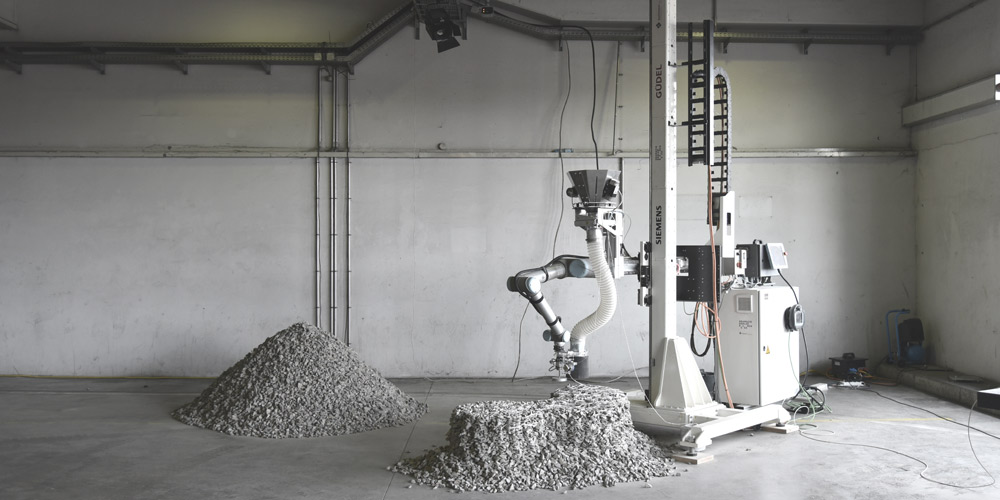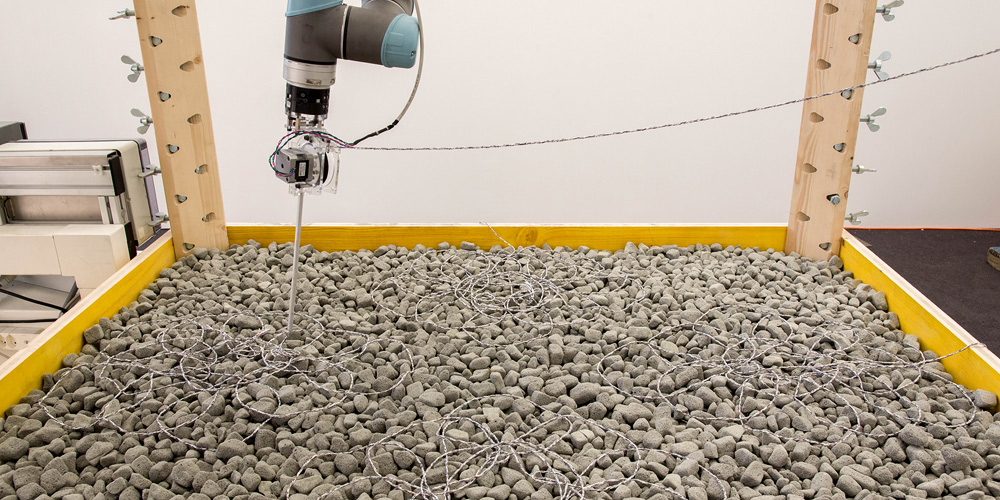
Credit: Gramazio Kohler Research
Gramazio Kohler Research, ETH Zurich (CH)
After the groundbreaking exhibition of Rock Print at the first Chicago Architecture Biennial 2015—for which Gramazio Kohler Research of ETH Zurich and the Self-Assembly Lab at MIT received this year’s STARTS Prize—Rock Print: a Manistone demonstrates the significant advances of the ongoing research in jammed architectural structures at ETH Zurich.
While Rock Print appeared massive, it was relatively lightweight due to the use of foam-glass gravel. Two years later, the research breakthroughs are responding equally strongly to an ecological and technological agenda: No additives, no substitutes, no mortar, no formwork, just real string and real gravel. It is the purest yet most highly advanced presentation of the robotic fabrication of jammed gravel held in place by computed and robotically placed string patterns to form architectural structures. It is a solid massif built up from loose rock: a Manistone.

Credits
Gramazio Kohler Research, ETH Zürich
Team: Petrus Aejmelaeus-Lindström and Gergana Rusenova (project lead), Ammar Mirjan, Romana Rust, Hannes Mayer, Fabio Gramazio, Matthias Kohler
In cooperation with: Prof. Hans J. Herrmann, Dr. Falk K. Wittel with Pavel Iliev (Institute for Building Materials, ETH Zurich)
Project funding: ETH Zürich Foundation
Selected experts: Self-Assembly Lab, Massachusetts Institute of Technology (MIT)
About the artists
Gramazio Kohler Research
Since its inception in 2005 the research group at ETH Zürich led by Prof. Matthias Kohler and Prof. Fabio Gramazio has been at the forefront of robotics and digital fabrication in architecture. With their robotic laboratories and work ranging from prototypes to building elements, they have inspired architects and researchers alike to explore the capacities of the industrial robot as a universal tool of the digital age.
Read more: starts-prize.aec.at.
This project is presented in the framework of the STARTS Prize 2017. STARTS Prize received funding from the European Union’s Horizon 2020 research and innovation programme under grant agreement No 732019.
![]()

